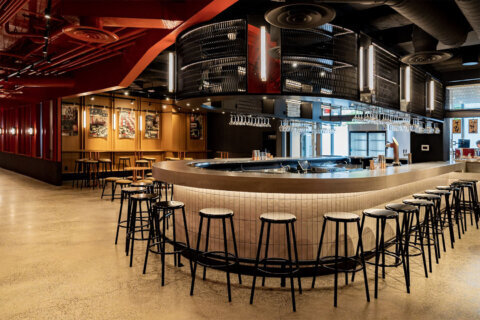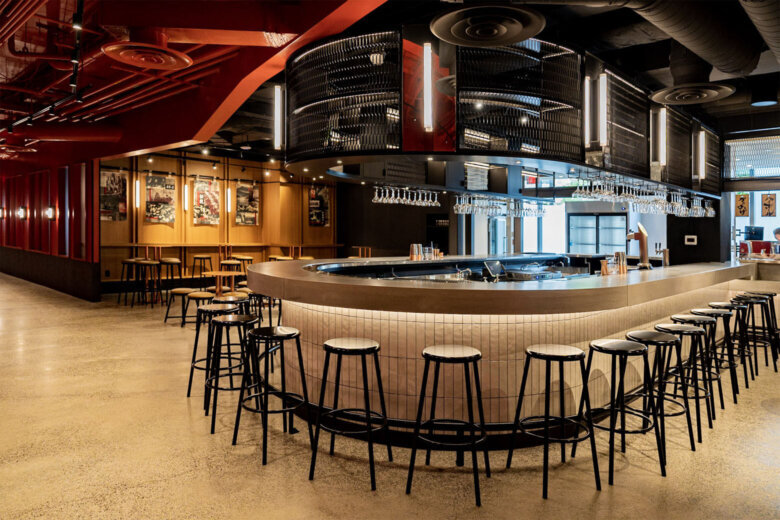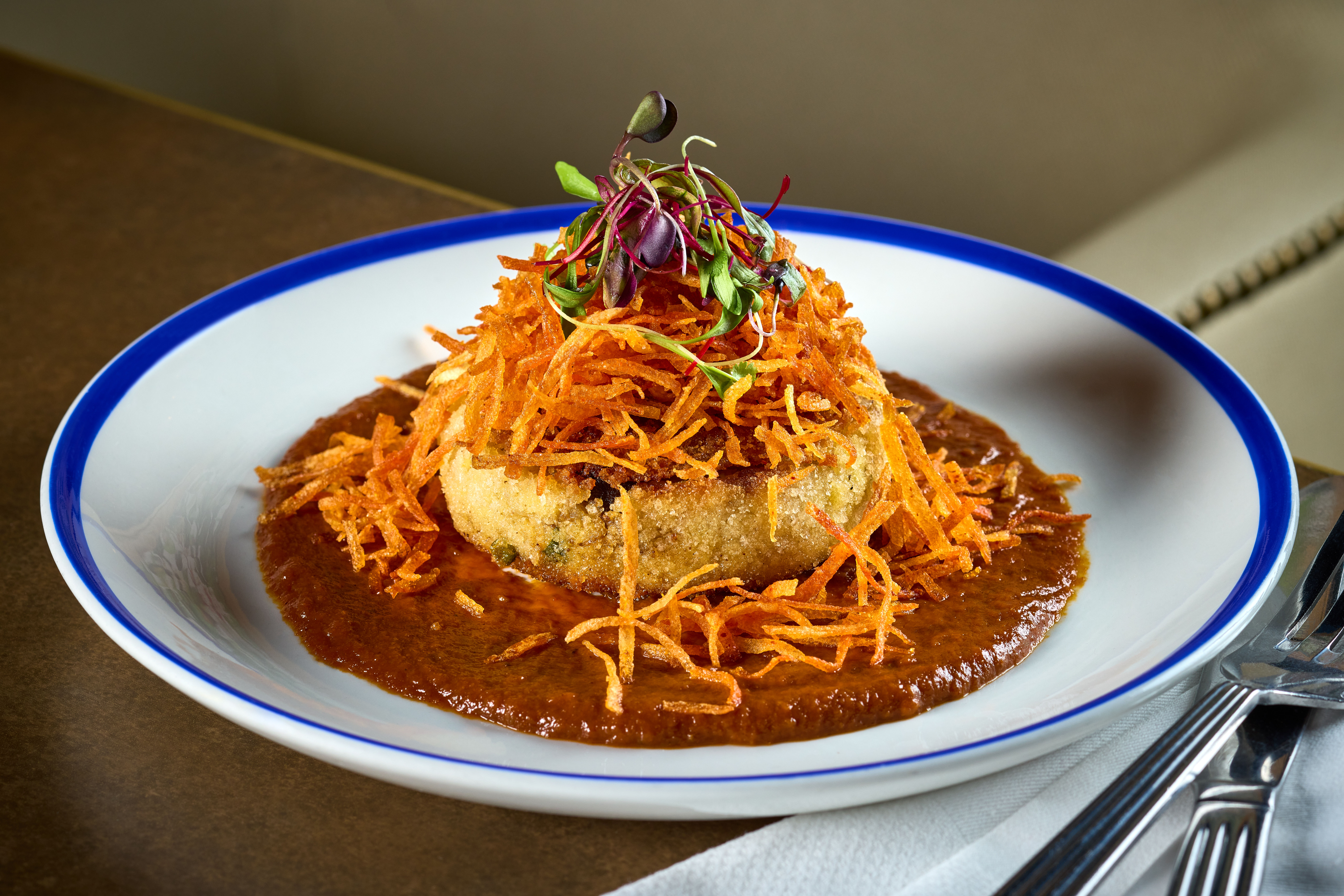
This year saw the addition of three new food halls in the D.C. region: The Square in Foggy Bottom, Love, Makoto near Mt. Vernon Triangle and The Heights in Chevy Chase, Maryland.
And there are plans for more food halls, including one in the mixed-use project at 45 Q Street SW that is expected to be finished by 2025, according to the Washington Business Journal.
Already, these recent food halls have found acclaim, with both Beloved BBQ and Dear Sushi at Love, Makoto being recognized by MICHELIN and The Square being deemed “D.C.’s most ambitious food market to date” by Eater DC. The Washington Post’s food critic Tom Sietsema also named Love, Makoto one of his “favorite places to eat” in September.
Across the nation, there are currently at least 364 food halls with more than 120 under development and expected to open in 2023 or 2024, according to the Wall Street Journal.
Of course, food halls aren’t a new phenomenon. Union Market in NoMa has been a popular destination in Northeast D.C. ever since EDENS reopened the site in 2012. And long before that, Eastern Market in Capitol Hill has served the community since 1873, making it the city’s oldest, continually operating food market.
But it’s hard to argue that food hall fever hasn’t hit the region hard when there are now approximately 20 to choose from, from Spice Village in Herndon, Virginia, up to Le Fantome in Riverdale Park, Maryland. WTOP has mapped these and more food halls below.
But what is helping spur this growth? For Christopher Morgan, chief culinary director for the The Kitchen Collective (TKC), it’s all about opportunity. He told WTOP that almost all of TKC’s concepts are operating out of a food hall, while TKC’s Vienna, Virginia, location at 8045 Leesburg Pike is a self-described “virtual food hall” or a “ghost kitchen on steroids,” as Morgan put it.
Morgan said the appeal of working in a food hall is that there are fewer barriers to entry.
“When you’re starting a brick-and-mortar at any location, you’re worrying about the build out, worrying about the plumbing, the electric, the everything, right?” he said. “When you jump into a food hall, unless you’re the one operating and building the food hall, you don’t have to worry about those things.”
Without having to worry about minutia like managing trash or engineers, chef and restaurateur Kevin Tien said he sees food halls as a good way for new entrepreneurs and young entrepreneurs to “just focus on the food.” Tien is a part of several food halls, including Doki Doki BBQ and Hot Lola’s in Bryant Street Food Market in Northeast D.C., Hot Lola’s in Ballston Quarter in Arlington, Virginia, and soon Doki Doki Sushi in The Heights food hall in Chevy Chase, Maryland.
Chad Sparrow, managing director of Common Plate Hospitality, runs The Heights food hall — which is expected to open Monday at 5 p.m. He told WTOP that the Chevy Chase neighborhood “doesn’t have that many options” and that a food hall like The Heights can “provide a unique kind of trip around the world” within a “casual environment.”
It’s these worldwide flavors that also are appealing to consumers, especially those in the D.C. region. Morgan said that the diversity of the area boosts the demand for food halls where so many different types of businesses can thrive.
“I think people’s palates are well-trained here that they’re willing to go out and try different cuisines and food halls … Even if you were to go somewhere like Miami, I don’t think you have as broad of a range as you do here,” Morgan said.









